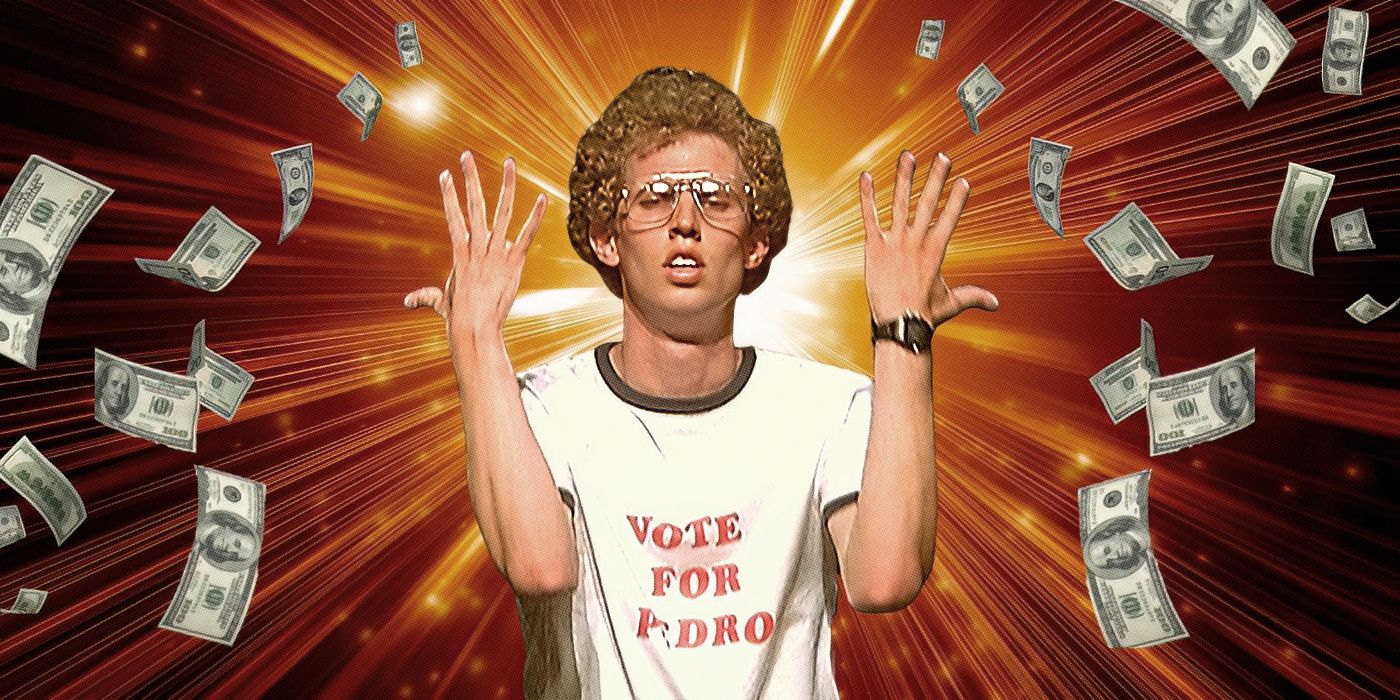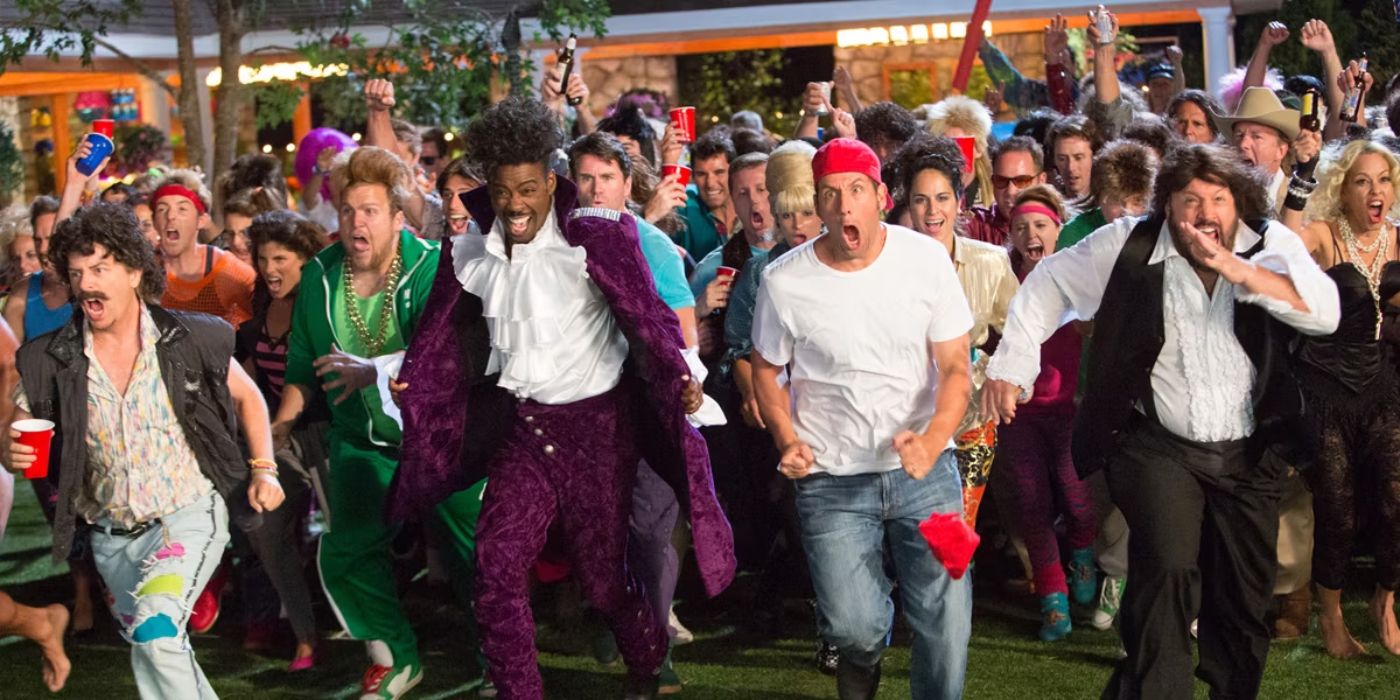The Big Picture
- The use of popular music in films, both diegetic and non-diegetic, has a powerful complementary effect on the overall movie experience.
- “U Can’t Touch This” by MC Hammer is the most frequently used song in movies, appearing in 15 films, followed closely by “Under Pressure” and “Push It.”
- The song is commonly used in comedies of the early 2000s to convey irony and highlight uncool or unhip characters, representing a transition from the 1980s to the ’90s culture.
The use of popular music in films is a device so prevalent in modern cinema that audiences have taken it for granted. In both diegetic (music heard by the characters in the narrative) and non-diegetic forms, the complementary effect that music has on a film is unmatched. Films like Saturday Night Fever, Purple Rain, Dirty Dancing, and Almost Famous are defined by their soundtracks filled with an eclectic variety of preexisting music and tracks created for the release of their respective films. For filmmakers like Martin Scorsese and Quentin Tarantino, the timely “needle drop,” or the use of a pop song on screen, is an essential trait of their cinematic style. As audiences have grown accustomed to Top 40 hits and obscure B-sides in film, there are many songs moviegoers have become numb to hearing, with the most ubiquitous needle-drop, MC Hammer’s smash-hit “U Can’t Touch This,” appearing in the largest number of films on record.
Why Do We Hear the Same Songs in So Many Movie Soundtracks?
Released as a single in 1990 from MC Hammer’s third album, “Please Hammer Don’t Hurt ‘Em,” “U Can’t Touch This” was an instant phenomenon. The track, which sampled Rick James‘ “Super Freak,” soared to the top of the Billboard Hot R&B/Hip-Hop Singles & Tracks chart, and received Grammy Awards for Best R&B Song and Best Rap Solo Performance. “U Can’t Touch This” broke ground as the first hip-hop track to be nominated for Record of the Year at the Grammys. The iconography of the song, from its quotable lyrics to Hammer’s recognizable fashion and dance moves from the music video, lives on in culture. When one yells “Stop! Hammer time!” everyone gets the reference.
With the advent of deploying popular music to enhance a scene within a film, naturally, a redundancy of tracks is due to manifest. The utilization of songs in the context of particular settings is clichéd enough to be the target of parody. “Fortunate Son,” or just about any song by Creedence Clearwater Revival, has become synonymous with the Vietnam War, thanks in large part to its addition to the popular Forrest Gump soundtrack. Once a film’s plot shifts to the land of Great Britain, there is a strong chance that “London Calling” by The Clash will cue on the spot. Ever since Easy Rider arrived in the late ’60s and brought its counterculture movement to the public consciousness, Steppenwolf‘s “Born to be Wild” has been deployed to signify a feeling of liberation – oftentimes ironically, as most cleverly illustrated in Albert Brooks‘ satire of corporate yuppies’ expedition to the American West, Lost in America.
“U Can’t Touch This” Is Featured in More Movie Soundtracks Than Any Other Song
“U Can’t Touch This” emerged as a coveted song for use in films from the early 2000s to the present day. According to research by Casumo, with sources extracted from a database of over 4,000 movies, the MC Hammer track is the most frequent song heard across this substantial library of films. The website’s research, with data supported by Tunefind, indicates that the hip-hop classic can be heard in as many as 15 movies, including Tropic Thunder, Into the Wild, Charlie’s Angels: Full Throttle, and Grown Ups 2. For comparison’s sake, other recognizable songs “Under Pressure” by Queen & David Bowie and “Push It” by Salt-N-Pepa trail just slightly, with 14 and 13 uses in films, respectively. Honorable mentions from the research include “Spirit in the Sky” by Norman Greenbaum and “It Takes Two” by Rob Base and DJ E-Z Rock.
An interesting caveat to the record of most frequent song selection in films is the consideration of “Happy Birthday to You.” Casumo did not include the festive jingle in their ranking, but it did ultimately appear in the most films out of any pop song heard on the radio. Because of its cultural ubiquity, the “Happy Birthday” song is hardly even thought of as a song. The colloquial recognition of the melody is ingrained as a behavioral practice on the occasion of someone’s birthday. Following a court settlement with Warner Music, who previously owned the rights to the song and were subjected to royalties for its use in media, “Happy Birthday to You” now belongs to the public domain. When factoring the original version and the depiction or satirization of Marilyn Monroe‘s cover of the song dedicated to John F. Kennedy, those checks were sure to pile up for the studio.

10 Songs You Immediately Associate With a Movie
Some songs that have appeared in memorable movie scenes have become forever associated with a film.
“U Can’t Touch This” Was the Soundtrack to the Best 2000s Comedies
No genre exploited the use of “U Can’t Touch This” more than the comedies of the early 2000s. For these films, like EuroTrip, White Chicks, Shark Tale, and countless others, the song tapped into the pervasive sense of irony that comedies embraced in this era. The track is commonly played to highlight a character that is not deemed to be hip or suave, as the song evokes the sentiment of an “uncool” person’s concept of what it means to be hip. MC Hammer’s song is a memento of a culture transitioning between the 1980s to the ’90s.
The inseparability of “U Can’t Touch This” from the zeitgeist makes the song’s entire existence, notably its catchphrase lingo and the hammer pants donned by the artist in the music video, hilariously outdated through a 21st-century lens. It is noteworthy that the song is rarely used to endearingly reminisce about ’90s culture in the same mold as a film set in the 1950s using music from Elvis Presley or Buddy Holly to capture its period. “U Can’t Touch This,” despite its commercial and critical success, is now inextricably ironic through its frequent inclusion in films. From The Master of Disguise to Borat, using Hammer’s iconic song as a punchline was magic on the mic.
Integrating catchy and recognizable pop music in films is a surefire way to make any viewing experience more engaging. The curation of radio mainstays and obscure gems in a musician’s filmography is an artistic process on its own. Needle drops are a satisfying collision of two beloved and accessible mediums, film and music. In instances of the most overplayed songs, particularly with “U Can’t Touch This,” filmmakers are apt to get greedy with pop music. Songs that become redundant in films devolve into tired clichés, and their value, when removed from the film’s influence, starts to wane. Advice to members of the creative team of films abroad: there are many more songs out there to exploit for the big screen.
EuroTrip is available to stream on Pluto TV in the U.S.


